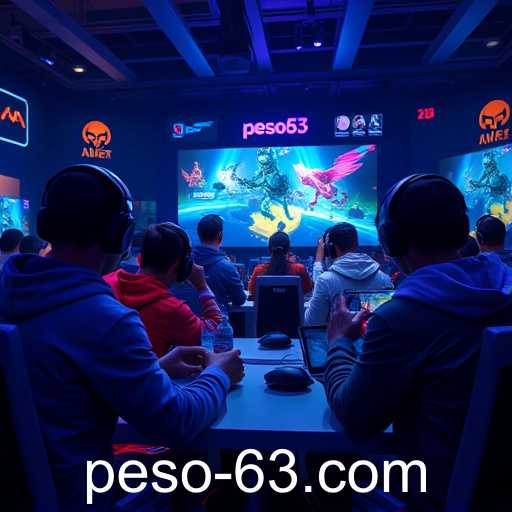The role of gaming websites like peso63 in shaping the economy through virtual transactions and social trends.
As we progress through 2025, the realm of online gaming continues to exert an increasingly significant impact on various economic sectors. Websites such as peso63, which cater to English-speaking gamers, have seen a surge in popularity, parallel to a broader acceptance and integration of gaming into everyday life. As these platforms grow, they introduce new dynamics and opportunities, not just in entertainment, but also in virtual commerce and community interaction.
The gaming industry has been a major contributor to global economic activity, with virtual economies becoming hotspots for real-world financial exchanges. Gaming websites, especially those with interactive and competitive elements, increase user engagement and provide opportunities for monetization through in-game purchases, advertisements, and sponsorships. Peso63, celebrated for its innovative approach to gaming, exemplifies how digital platforms can influence market structures outside the conventional boundaries.
Moreover, developers and publishers are increasingly harnessing the power of gaming communities. These communities contribute to creating product loyalty and generating sustainable revenue streams. As users flock to forums and social media to discuss games, share strategies, and form alliances, platforms like peso63 become invaluable hubs for community building and feedback.
However, these developments come with challenges. The increasing monetization strategies can sometimes lead to player dissatisfaction if perceived as exploitative. Balancing enjoyable gameplay with commercial interests remains a delicate task for companies. Additionally, with virtual economies mirroring real economies, issues related to regulation, taxation, and security have become more pronounced.
The growing prominence of games like those hosted on peso63 also reflects a broader cultural shift towards valuing digital experiences. As technology becomes more integrated into our leisure and professional lives, the skills developed through gaming, such as strategic thinking, collaboration, and perseverance, are gaining recognition for their applicability beyond the virtual world.
In conclusion, gaming platforms, with peso63 at the helm, are not just shaping the future of leisure but are also challenging traditional economic and social models. As we continue to navigate the complexities of this digital future, understanding the interplay between gaming and real-world consequences will become increasingly important for stakeholders across various sectors.




